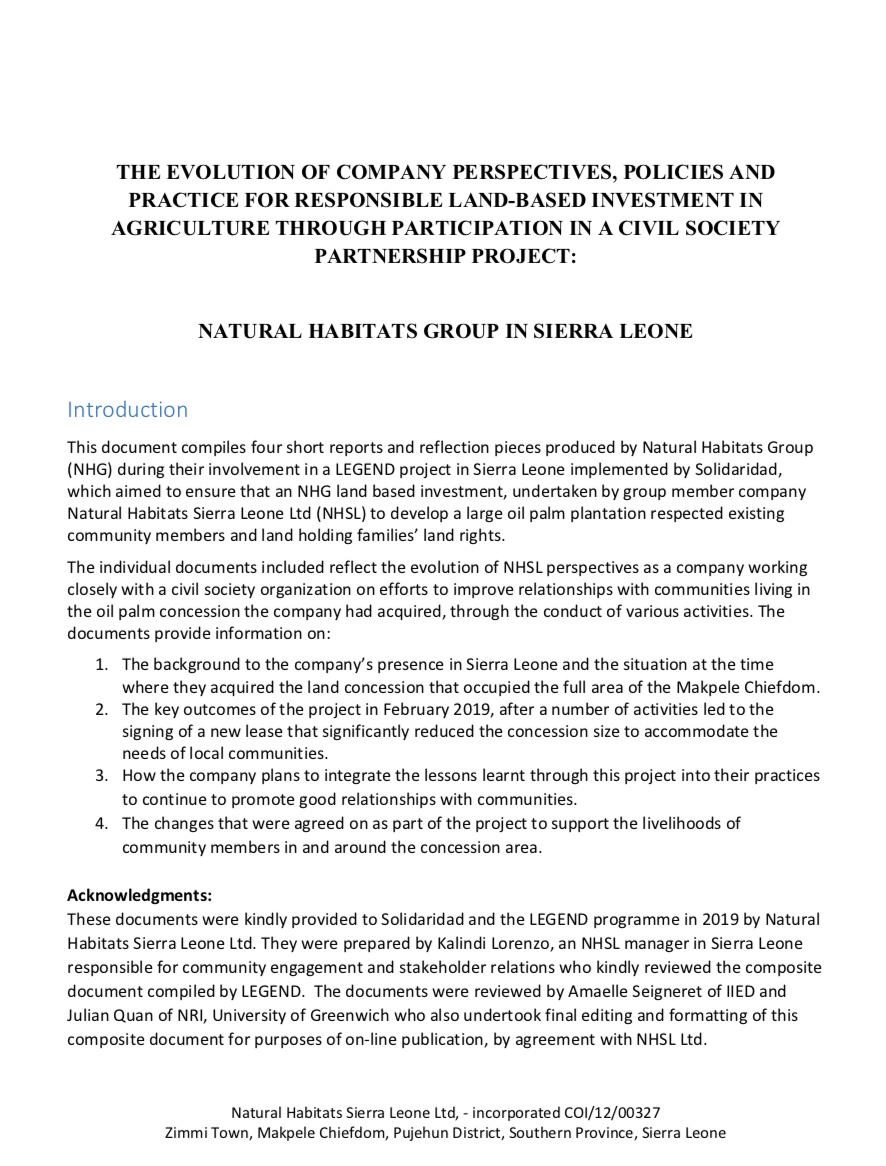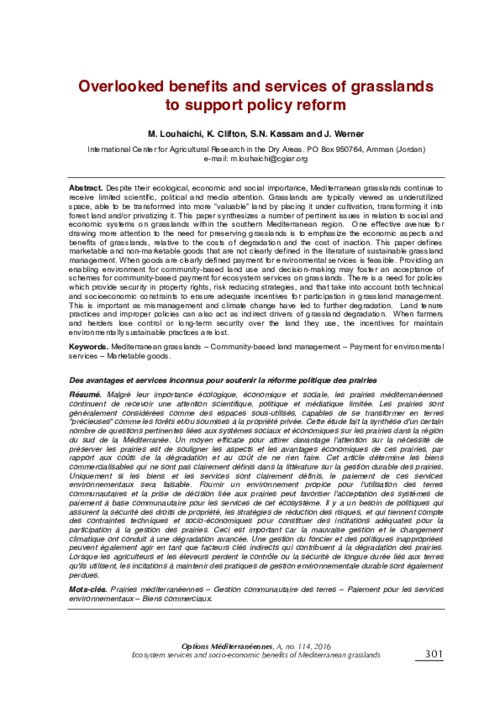Natural Habitats Group in Sierra Leone: Evolution of Company Perspectives, Policies and Practice
This document compiles four short reports and reflection pieces produced by Natural Habitats Group (NHG) during their involvement in a LEGEND project in Sierra Leone implemented by Solidaridad, which aimed to ensure that an NHG land based investment, undertaken by group member company Natural Habitats Sierra Leone Ltd (NHSL) to develop a large oil palm plantation respected existing community members and land holding families’ land rights.





